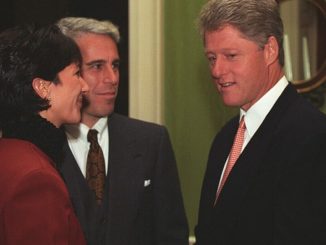
The Duke of York has said he has no recollection of posing with Virginia Giuffre when she was a teenager Credit: US Department of Justice
Published October 9, 2025
Email sent after Virginia Giuffre photo was published appears to undermine Duke of York’s claim he ended contact with the financier in 2010
A Single Line, a Shattered Defense
When an old email allegedly written by to surfaced this month, the reaction was immediate and explosive.
Dated February 28, 2011 — just one day after the now-infamous photo of Andrew with was made public — the message reportedly read:
“We are in this together and will have to rise above it … we’ll play some more soon.”
The email’s casual tone might have gone unnoticed at the time. But in 2025, it has returned as a haunting echo — a written contradiction of Andrew’s 2019 claim that he had severed all contact with Epstein after 2010. For many observers, it’s not merely a case of poor judgment but of credibility in collapse.
Political and Institutional Fallout
In Parliament, a handful of MPs called for renewed scrutiny over the monarchy’s transparency and the privileges that can shield royals from legal accountability.
Though the government maintained official neutrality, several opposition figures suggested that the institution must no longer be insulated from the same scrutiny imposed on public servants.
In the U.S., where most Epstein-related legal proceedings have unfolded, the reaction was equally sharp.
Legal experts argued that the email could justify renewed efforts to seek testimony from Andrew or at least clarify inconsistencies in his public statements.
While extradition remains unlikely, U.S. investigators and congressional figures may use the revelation to keep pressure on associates of Epstein’s global network.
 Public / Political Reactions
Public / Political Reactions
Media / Press Response
-
The email has been widely framed in headlines as “damning” or “explosive”, emphasizing how it appears to contradict Andrew’s past claims that he had cut ties with Epstein in 2010. telegraph.co.uk+1
-
Opinion and editorial columns are running strongly against Andrew, interpreting the email as further evidence of deceit or culpability. Some call it a turning point in public perceptions of the royal’s integrity.
-
In popular media (tabloids, talk shows, social media), there’s renewed outrage, mockery, and demands for accountability. Many see the email as a “smoking gun” moment.
Public Sentiment & Social Media
-
Among the general public and on social media, the email has intensified skepticism about Andrew’s statements and apologies. Many voices suggest it deepens the discrepancy between what he claimed vs. what internal communications show.
-
The email has become a topic of viral discussion: people share it as evidence of longstanding hypocrisy, with commentators suggesting that past defenses or denials may have been knowingly misleading.
-
Victims’ advocates and survivors’ groups have used it to pressure institutions and the public to demand more transparency and accountability from powerful individuals.
Royal Brand / Reputation Impact
-
The royal family is again under strain, with many commentators arguing the institution must decisively distance itself from Andrew.
-
For some in public opinion, the royal brand’s moral authority suffers further erosion when prominent figures are seen to be above scrutiny.
-
The email has also reopened debates about whether royalty should face the same level of public and legal accountability as other citizens.
Political / Institutional Reaction
UK Political Sphere
-
While direct calls for legal accountability in the UK are more muted (given Andrew’s relative removal from active royal duties), political figures and commentators have weighed in, often emphasizing that the revelation underscores the need for constitutional transparency and checks even for high-status individuals.
-
Some opposition MPs and media watchdogs are likely to use the email as leverage to criticize government oversight or decision-making relating to royal privileges, secrecy, or immunity.
-
The issue may be raised during parliamentary sessions or hearings, especially in contexts of ethics, public institutions, or royal accountability.
International / U.S. Angle
-
In the U.S., where much of the Epstein investigation and legal proceedings have taken place, the email adds fuel to calls that Andrew should not be exempt from scrutiny, particularly if any alleged misconduct has implications on U.S. soil.
-
Some U.S. lawmakers or oversight bodies may cite the email in pushing for more expansive investigations or disclosures relating to Epstein’s network and associates.
Responses from Institutions & Stakeholders
-
Institutions affiliated with Andrew or with whom he held patronages may face renewed pressure to distance themselves or sever ties permanently if they have not already.
-
Charities and nonprofits, particularly those sensitive to reputation risk, may preemptively sever any remaining connections, citing reputational integrity and public expectations.
-
Legal theaters may reopen, or existing lawsuits or claims may resurrect this email as evidence. It could be used in depositions, discovery, or as grounds to question credibility.
Responses from Allies & Detractors
-
Allies and defenders of Andrew are likely to push back, characterizing the email as misinterpreted, taken out of context, or subject to alternative explanations.
-
Detractors will contend it is proof that past denials or distancing efforts were disingenuous, and that Andrew’s public narrative has been constructed on contradictions.

Prince Andrew secretly told paedophile Jeffrey Epstein ‘we are in this together’ a day after The Mail on Sunday first published this picture of the Duke with his alleged

The email was sent to Epstein 12 weeks after Andrew had supposedly ceased all contact with the convicted sex offender. Pictured: The pair seen walking together in New York in 2011
 Resulting Effects
Resulting Effects
🏛 1. Legal and Investigative Consequences
Reopened Scrutiny
-
The email — allegedly sent one day after the “infamous photo” with Virginia Giuffre resurfaced — has intensified scrutiny of Andrew’s prior statements and timelines.
-
Lawyers representing Epstein’s victims are reportedly viewing this as potential contradictory evidence to Andrew’s public claims, increasing pressure to reopen lines of questioning in any related civil proceedings.
Evidentiary Value
-
Legal analysts suggest the email could be used to challenge Andrew’s credibility in court or in any future depositions.
-
It may also support arguments that Andrew maintained closer ties to Epstein than previously admitted, which can strengthen claims in related civil suits.
U.S. Investigative Pressure
-
Because most Epstein-related legal activity is U.S.-based, this revelation may embolden federal prosecutors and state attorneys to re-evaluate Andrew’s past cooperation—or lack thereof.
-
It could potentially revive calls from some U.S. lawmakers to subpoena testimony or apply diplomatic/legal pressure.
🕊 2. Institutional and Royal Repercussions
Royal Family’s Reputation
-
The monarchy’s credibility—already strained by the Epstein scandal—faces renewed damage.
-
There are increasing public calls for the royal family to permanently distance itself from Andrew, beyond the titles and duties he already lost.
-
Public trust and royal approval ratings may dip further, especially among younger demographics skeptical of institutional privilege.
Internal Royal Dynamics
-
Buckingham Palace faces renewed pressure to issue statements or clarify its stance.
-
A more formal permanent sidelining of Andrew could be on the table, with even more limited appearances and no ceremonial roles.
-
Discussions about future transparency of royal finances and privileges may intensify.
📰 3. Political and Policy Effects
In the U.K.
-
Members of Parliament from opposition parties have already begun calling for greater accountability and transparency in how royal figures are shielded from legal processes.
-
Some political commentators view this as an opportunity to revisit long-standing constitutional questions regarding the monarchy’s legal immunity.
In the U.S.
-
Political pressure is mounting to ensure no one is above the law, especially in cases linked to Epstein’s network.
-
This can lead to new hearings, resolutions, or calls for cooperation between the U.K. and U.S. in legal inquiries.
📉 4. Social and Cultural Impact
Public Trust Erosion
-
Public opinion continues to turn more sharply against Andrew, with many perceiving the email as proof of dishonesty.
-
The scandal deepens perceptions that elite figures can evade accountability, further fueling class resentment and distrust in institutions.
Media Amplification
-
Major outlets and online communities have reignited coverage of Andrew’s relationship with Epstein.
-
Social media movements advocating for justice for victims are gaining fresh momentum, using the email as a rallying point.
💼 5. Economic and Organizational Fallout
Charity & Patronage
-
Organizations still loosely tied to Andrew (if any remain) may accelerate cutting ties to avoid reputational risk.
-
Previous partners in business or philanthropy are under renewed scrutiny and may issue public statements to distance themselves.
Tourism & Monarchy Funding Debates
-
Public funding for royal activities, already controversial, may face increased opposition.
-
Tourism boards and royal heritage institutions may need to navigate negative press carefully to protect revenue streams tied to royal branding.
⚖ 6. Long-Term Effects and Possible Next Steps
-
Legal: While not proof of a crime by itself, the email could reinvigorate legal and media investigations.
-
Political: Strengthened calls to reform or scrutinize royal privileges.
-
Social: Continued erosion of Andrew’s personal reputation, potentially irreversible.
-
Institutional: The monarchy may be forced to further modernize its accountability to maintain public support.

The MoS has verified the email address used by Andrew, while Epstein’s email address has repeatedly appeared in court documents. Prince Andrew last night declined to comment

The leaked email provides definitive proof the Duke lied in his interview with BBC’s Newsnight when he claimed he ‘never had any contact’ with Epstein after the pair were pictured walking together in New York’s Central Park in December 2010

In his disastrous Newsnight interview in 2019, Andrew also suggested the picture with Ms Giuffre was a crude forgery – but a 2023 investigation by this newspaper provided incontrovertible proof the photograph is genuine
 Future Outlook
Future Outlook
⚖️ 1. Legal Outlook
Continued U.S. Legal Pressure
-
U.S. prosecutors and civil attorneys representing Epstein’s victims may seek further cooperation or testimony from Andrew, arguing the email undermines his previous denials of contact.
-
There’s a real possibility of renewed depositions or document requests, particularly if new evidence connects the email to specific case timelines.
-
While extradition is unlikely due to diplomatic and constitutional complexities, legal interest in the Duke could remain alive for years.
Potential for New Disclosures
-
More correspondence could emerge—emails, call records, or documents—either leaked or released via ongoing U.S. cases (like those involving or financial institutions).
-
Such disclosures might further corroborate the timeline of communication between Andrew and Epstein, reshaping the narrative once again.
🏛️ 2. Political and Institutional Outlook
Royal Family Response
-
The Palace is expected to tighten its public boundaries with Andrew. While already stripped of most duties and titles, any lingering associations (like security arrangements or public support) may be reviewed.
-
Internal strategy will likely focus on damage containment: ensuring the scandal does not spill over onto other senior royals.
-
Expect minimal visibility of Andrew in public events, possibly replaced by controlled appearances related to family milestones, but no official role.
Monarchy’s Modernization Push
-
This renewed scrutiny could accelerate calls for a “modern monarchy” — one more transparent about finances, privileges, and internal accountability.
-
Lawmakers and activists may push to clarify the limits of royal immunity or funding oversight, particularly amid broader public frustration with elite privilege.
Government Neutrality
-
The British government will likely maintain official silence, emphasizing the monarchy’s constitutional separation from political matters.
-
However, off-record briefings and commentary may subtly encourage further distancing from Andrew to protect Britain’s international image.
🌍 3. International and Diplomatic Outlook
U.K.–U.S. Relations
-
The Epstein case remains a sensitive diplomatic topic. The new revelations could spark renewed media and congressional interest in Andrew’s role.
-
British diplomats may quietly coordinate with U.S. authorities to manage inquiries, ensuring the scandal doesn’t escalate into a bilateral controversy.
Global Media and Advocacy Pressure
-
International press—especially U.S., Australian, and European outlets—will likely continue covering Andrew as a symbol of elitism and unaccountability.
-
Advocacy groups may use the story to strengthen campaigns for survivor justice and against human trafficking, keeping the issue alive long after the headlines fade.
💬 4. Public and Social Outlook
Permanent Reputation Damage
-
Public rehabilitation for Andrew is highly unlikely. Polling data already shows deep mistrust, and this email reinforces perceptions of dishonesty.
-
He will probably remain socially and institutionally exiled, with any return to public life viewed as tone-deaf or controversial.
Impact on the Royal Brand
-
Younger generations, already skeptical of royal privilege, may further disengage.
-
The royal family’s survival strategy will hinge on differentiating “The Firm” from the individual, emphasizing service and transparency to preserve legitimacy.
-
Expect future documentaries, exposés, and dramatizations that keep this episode alive in pop culture.
💡 5. Long-Term Projections
| Category | Short-Term (Next 6–12 Months) | Mid-Term (1–3 Years) | Long-Term (Beyond 3 Years) |
|---|---|---|---|
| Legal | Renewed document and testimony requests; legal analysts reviewing inconsistencies. | Possible new evidence leaks or subpoena attempts in U.S. cases. | Legal quieting unless criminal ties emerge. |
| Political | Opposition MPs raise accountability concerns. | Debate over royal transparency reforms. | Normalization of stricter oversight on royal funding and roles. |
| Institutional | Full withdrawal of Andrew from all public engagements. | Rebranding of royal image under ’s streamlined monarchy. | Gradual historical reframing of Andrew’s role as cautionary. |
| Public | Intense social media backlash and media coverage. | Declining attention but enduring negative perception. | Permanent reputational scar; part of the historical record. |
🔮 6. Overall Outlook
Prince Andrew’s path toward rehabilitation appears effectively closed.
The monarchy will likely survive the scandal through strategic distancing and controlled transparency, but the incident cements Andrew’s place as a symbol of privilege unchecked.
The public mood, political will, and global attention suggest that while the legal consequences may plateau, the cultural and institutional damage is long-term—fueling ongoing conversations about accountability, class, and justice in modern Britain.
 Bottom Line:
Bottom Line:
The resurfacing of ’s alleged email to — written at a time when public scrutiny was closing in — has reignited one of the most damaging chapters in modern royal history.
What might have seemed a fleeting line of correspondence has instead become a symbol of trust broken, privilege questioned, and accountability deferred.
The message, if authenticated, challenges not only Andrew’s public denials but also the moral posture of the institution he represents.
For the monarchy, this is more than a personal scandal — it is a test of credibility in an age when transparency is no longer optional.
For the public, it reinforces a long-held belief that power too often shields itself from consequence.
In the end, the story of Andrew and Epstein is not merely about two men bound by scandal.
It is a reflection of a broader reckoning — one that spans politics, justice, and culture — about how societies hold the powerful to account.
The monarchy’s ability to endure this reckoning will depend not on silence or distance, but on whether it can embody the integrity and responsibility it expects its subjects to uphold.
Until that balance is restored, the email will remain more than just a relic of poor judgment — it will stand as a reminder of how a single message can expose the fragility of privilege and the enduring demand for truth.
SOURCES: DAILYMAIL ONLINE – Prince Andrew secretly told Jeffrey Epstein they would ‘play some more soon’ – ONE DAY after the Mail on Sunday published photo of him with teenage sex victim Virginia Giuffre
THE TELEGRAPH – Prince Andrew told Epstein ‘we are in this together’





Be the first to comment